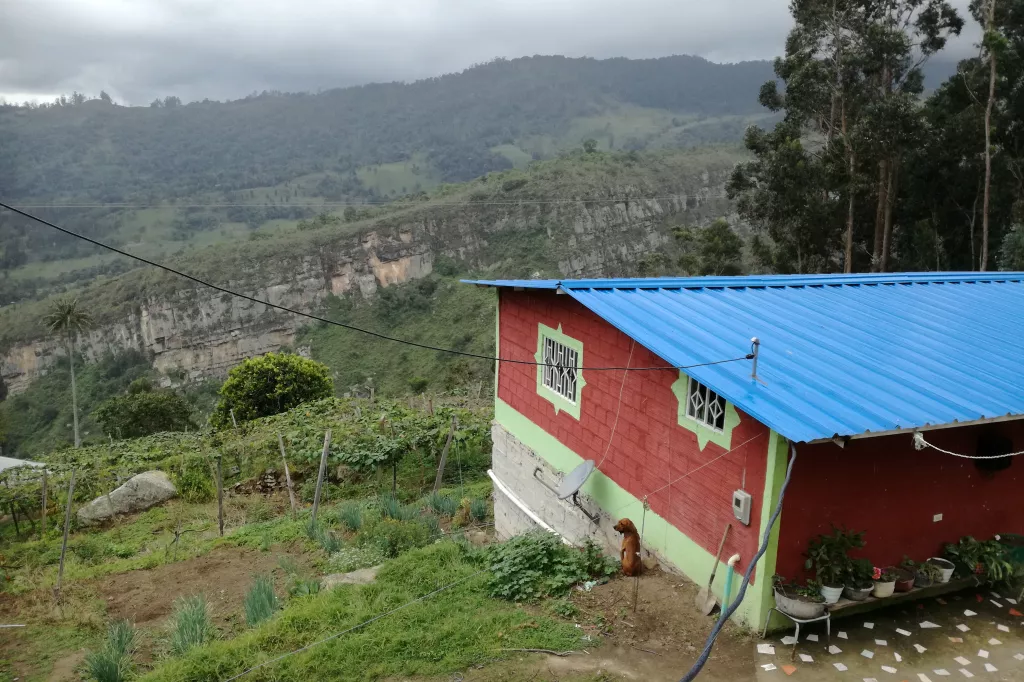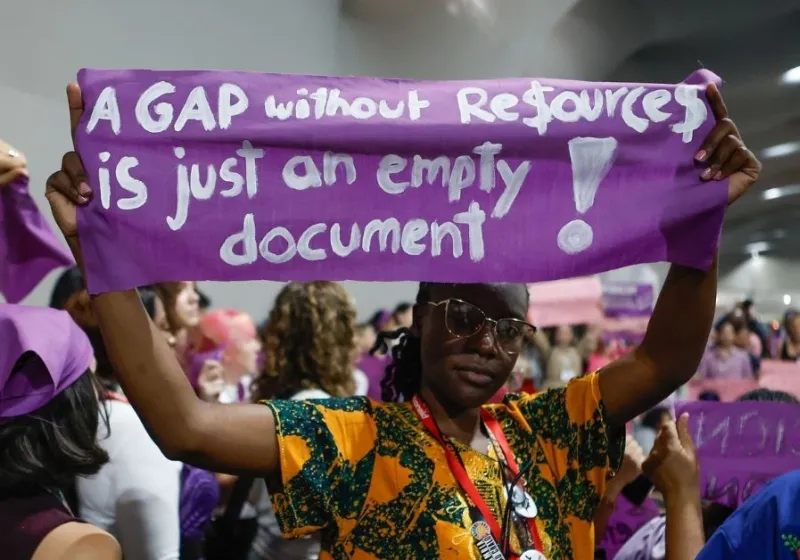Peasant Reserve Zones: a territorial management model contributing for peace in Colombia

Colombia is a country that since 1991 has recognised in its National Constitution its own ethnical and cultural diversity, as a nation populated by a significant number of indigenous and afro Colombian communities. Nonetheless, there is a big part of Colombian population that has not been fairly recognised as rights-bearers: the peasants, that is, rural communities that dedicate mainly to farming activities, and have been, together with the indigenous and the afro Colombian, historically marginalised communities.
The unequal land distribution in Colombia has been one of the most critical factors determining the internal armed conflict, with pending rural reforms that have been periodically promised and never accomplished. The establishment of enormous estates in rural areas, a land accumulation process that has been directly tangled with the armed conflict and violent acts of different types, has displaced millions of people (Colombia is the country with most internally displaced people – 7,7 million since 1985, according to UNHCR).
As one of the main factors that determine the social and political conflict in Colombia, a Comprehensive Rural Reform has been included as the first of six chapters of the Peace Agreement between the Colombian government and the FARC guerrilla. As well as with a major part of the Agreement, such rural reform has not yet been designed or implemented.
One of the alternatives that Colombian civil society in rural areas has been building and promoting for more than two decades is the peasant reserve zone (PRZ), which basically is a territorial peasant model, by establishing geographically delimited areas, where organised communities plan their own alternative and sustainable processes, agreed and negotiated with local and national duty-bearers. Thus, it implies the active participation of peasant communities in the regional planning for rural development.
In the current context of the implementation of the peace agreement between the Colombian government and the FARC guerrilla (an illegal armed group that had its origins in this peasant and land conflict in the 1950s), the PRZ becomes a valuable initiative for peace building and sustainable development in the rural regions of Colombia. Not only it has the potential for a social mending of communities that have been marginalised and/or affected by the conflict, but also for an environmental management of the territories, adopting agroecological practices, as well as clean and renewable technologies.
Some of the main challenges for the constitution of PRZs imply the regulation and control of the expansion of farming frontiers, especially critical in regions where the PRZs are adjoining to national natural reserves, or to collective ethnical reserves (indigenous or afro Colombian).
To be legally constituted, a PRZ must go through a procedure that implies several steps: dissemination, constitution application, sustainable development plan, public hearing, decision, land acquisition, formulation of sustainable farming projects, and evaluation & follow-up.
Additionally, as this territories are frequently in distant and isolated regions, with a limited (or non-existent) presence of duty bearers and public institutions, and also suffer the existence of illegal armed groups that might bring risk to communities and mainly to their leaders, a special challenge has been to create and manage their own mechanisms for safety in the territories. A significant initiative in this sense is the creation of local peasant guards, which become safety promoters and volunteers to preserve peaceful environments within the PRZs.
Forum Syd, together with the National Association of Peasant Reserve Zones (ANZORC, in its Spanish acronym), developed a capacity development initiative which took the form of a peasant school that itinerated around the country working with 67 member organisations of ANZORC, opening spaces for exchange, dialogue and learning in relation to different components of what it implies to work on the constitution and consolidation of PRZs. Thus, the school included topics such as agroecological practices, solidary economy, care economy, territorial safety, differential approaches (gender, age, ethnical group), sustainable environmental management, financial and administrative strengthening, among others.
The methodological principles of the Erley Monroy School (named after a renowned peasant leader from the Caquetá region in Colombia, who was assassinated in 2016 on a road near to his farm), include a peasant-to-peasant educational interaction (opposite to a traditional teacher-student interaction), an important component of territorial walks (the main reason why the School is always carried out in peasant territories, more precisely within peasant reserve zones), and with a balanced participation of men and women.
According to the diagnosis results for each node, specific versions of the School were carried on with the components that require to be strengthened.
Peasants in Colombia have been a historically marginalised population in Colombia, left behind even from the efforts achieved through the 1991 National Constitution of recognising the Colombian cultural and ethnical diversity. As indigenous and afro Colombian communities were formally recognised in their differential rights, peasant communities have been left out of these kind of policies, maintaining a struggle of more than half a century in the recognition of their rights, specially to land. Thorugh the work with ANZORC that led to the implementation of the Erley Monroy School, an enriched definition of peasants was achieved. The agricultural activity continues being a primordial element of appropriation of rural land, although this does not exclude other activities that the peasants might carry on. While the peasant maintains a link with the land and the construction of territory, they are features that constitute differentiable ways of inhabiting and transforming nature. Thus, different types of peasantry have been identified by communities, such as:
• Peasant - miner. The people who live in territories of mining production and who maintain the peasant principles with or without land, but who do mining as an element of economic support and as an aid to sustain their land.
• Peasant - fisherman. People who live in territories where the main economy involves fishing and who develop their peasant economy practices based on this principle. This type of peasant in its relationship with the territory generates cultural aspects related to water and the rivers.
• Peasant - coca grower. People who are rooted in peasant practices but who were forced or decided to cultivate the coca leaf to survive, due to the political, social and economic environment.
• Peasant without land. People who live in rural or urban areas who for political and economic reasons, find themselves without land to work and build their social relationships.
• Peasant uprooted. They are people who do not live in rural areas but whose origins and roots are peasant and are recognized as such.
• Peasant - Indigenous. In some PRZs inter-ethnic territorialities co-exist, which in the framework of difference have built joint, intercultural sustainable development plans and have even thought of territorial plans that contemplate the presence of communities with different cultures.
• Peasant - Afro. In some regions, peasant and Afro-descendant organizations and communities coexist, with their respective territories (collective territories of the afro communities and the PRZs), building a path for recognition as intercultural territories.
With the UN Declaration on the Rights of Peasants and Other People Working in Rural Areas in December 2018, a new window of hope opens for the international advocacy towards peasant rights in Colombia and the region as well. Through the implementation of our global roles as programme developers, grant administrators, capacity developers and advocators, Forum Syd Hub LAC will certainly continue supporting the work of peasant communities towards their access to rights, opportunities and a future based on peace building and well being for all, in Colombia and Latin America.
Other recent articles

ForumCiv’s social media accounts labelled as “extremist materials” in Belarus
Important message to our Belarusian followers. Any interaction with our content can now lead to legal consequences in Belarus. Please read the information below and take the necessary precautions for...

ForumCiv enters new strategic partnership
ForumCiv is proud to announce a new three-year strategic partnership with Sida, totalling SEK 137 million.

ForumCiv at COP30: African voices at the centre of climate justice
ForumCiv is participating in COP30 in Belém to amplify the voices of African civil society, who stand at the frontlines of the climate crisis yet are often excluded from decision-making.